Targeted therapy is a cancer treatment that focuses on specific proteins in cancer cells. It’s a key part of precision medicine, which uses genetic info for personalized care. This approach could change cancer treatment by making it more effective and tailored to each person.
It’s about giving specific care based on a patient’s genes and body substances. Precision medicine, or personalized care, is all about this. It’s a way for doctors to tailor treatments to fit each patient’s unique needs.
Targeted therapy is a big part of precision medicine. It helps find people at risk for cancer early. By using genetic info, treatments can be more precise, leading to better care.
Tests like biomarker and pharmacogenomic testing help doctors understand cancer and how treatments work. This info is key for making treatment plans that really work for each patient.
Targeted therapy is vital for treating many cancers, like lung, breast, colon, and ovarian. It targets specific genetic mutations, like EGFR in lung cancer. This can lead to better treatment results and care for patients.
The use of targeted therapies is growing fast. The market is expected to hit $100 billion by 2025. This shows how important targeted therapy is becoming in cancer treatment.
Key Takeaways
- Targeted therapy is a type of cancer treatment that targets specific proteins that control how cancer cells grow, divide, and spread.
- Precision medicine, also known as personalized medicine or personalized care, involves using genetic information to tailor treatment to an individual’s unique needs.
- Targeted therapy aims to identify individuals at high risk for cancer and assist in early cancer detection and diagnosis.
- Biomarker testing and pharmacogenomic testing can provide critical information about cancer cell growth and treatment drug metabolism.
- Targeted therapy is essential in treating various types of cancer, including lung, breast, colon, and ovarian cancers.
- The targeted therapy market is projected to reach an estimated value of $100 billion by 2025.
- Targeted therapy can improve treatment outcomes and enhance patient care by targeting specific genetic mutations.
Understanding the Fundamentals of Targeted Therapy
Targeted therapy, also known as molecularly targeted therapy, is a cancer treatment. It focuses on specific proteins that help cancer cells grow and spread. This method is different from old treatments like chemotherapy and radiation, which can harm healthy cells too.
Gene-based therapy is a big part of targeted therapy. It looks at the genetic changes that cause cancer. Then, it creates treatments that aim at these changes.
In cancer treatment, targeted therapy has shown great promise. For example, trastuzumab, a monoclonal antibody, works well for HER2-positive breast cancer. This therapy targets how cancer cells talk and grow, leading to better treatments.
Key parts of precision medicine include genetic and biomarker testing. These help doctors create treatments that target cancer’s genetic mutations. This approach leads to more effective treatments.
Targeted therapy is becoming more important in cancer treatment. It can target cancer cells without harming other cells. With more FDA-approved therapies, patients have more options. This has led to better survival rates and fewer side effects.
How Molecularly Targeted Therapy Works in Your Body
Molecularly targeted therapy is a cancer treatment that targets specific proteins in tumors. It’s different from traditional chemotherapy, which can harm healthy cells too.
Targeted therapy uses drugs that focus on proteins in cancer cells or on their surface. This helps slow or stop cancer cell growth and can shrink tumors. Examples include monoclonal antibodies, tyrosine kinase inhibitors, and angiogenesis inhibitors.
Some benefits of targeted therapy include:
- Reduced side effects compared to traditional chemotherapy
- Improved treatment outcomes when combined with other therapies
- Increased precision in targeting cancer cells
Molecularly targeted therapy is a promising cancer treatment with significant benefits. It helps patients make informed decisions about their treatment. Working with healthcare providers, they can create a personalized treatment plan.
| Targeted Therapy | Example | Benefits |
|---|---|---|
| Monoclonal antibodies | Trastuzumab | Effective in treating HER2-positive cancers |
| Tyrosine kinase inhibitors | Imatinib | Highly effective in treating specific leukemia types |
Types of Gene-Based Targeted Treatments
Gene-based therapy is growing fast, with new treatments being developed. These include monoclonal antibodies, small molecule drugs, and immunotherapy. Monoclonal antibodies target specific proteins on cancer cells, helping the immune system destroy them. Small molecule drugs work inside cancer cells, slowing their growth.
Immunotherapy uses the immune system to fight cancer. It includes treatments like checkpoint inhibitors and cancer vaccines. These methods have shown great promise in . CAR T-cell therapies have been approved for some cancers, giving patients new hope. Targeted therapy is key in fighting cancer, with gene-based therapy playing a big role.
Some main types of gene-based targeted treatments are:
- Monoclonal antibodies
- Small molecule drugs
- Immunotherapy approaches
These treatments have a lot of promise in cancer treatment. Research is ongoing to create even better therapies. As gene-based therapy keeps growing, we’ll see more innovative treatments. This offers hope to those fighting cancer and their families.
The Role of Genetic Testing in Personalized Treatment
Genetic testing is key in precision medicine. It helps doctors tailor treatments to fit each person’s genetic makeup. By looking at a tumor’s genes, doctors can pick the best treatments. Genetic testing also finds genes linked to cancer risk, guiding prevention and screening.
Using genetic testing before treatment can make treatments work better by about 50%. Studies show patients with genetic tests had fewer side effects and complications, up to 30% less than usual treatments. This shows how vital personalized treatment is for better patient results.
Genetic testing in precision medicine has many benefits:
* Finds cancer risk genes
* Helps plan prevention and screening
* Tailors treatments to each person’s genes
* Cuts side effects and complications by up to 30%
* Makes treatments work better by about 50%
By adding genetic testing to personalized treatment plans, doctors can give more effective and targeted care. This leads to better patient outcomes and quality of life. As precision medicine research grows, genetic testing’s role in healthcare will become even more critical.
Common Applications in Cancer Treatment
Cancer treatment has made big strides with targeted therapy. This is a type of precision medicine that focuses on specific molecules that help cancer grow. It has led to many targeted therapies, each aimed at different proteins or genes that help cancer cells live and grow.
Some common uses of targeted therapy in cancer treatment include:
- Breast cancer: Trastuzumab and pertuzumab target the HER2 protein, which some breast cancers have too much of.
- Lung cancer: Erlotinib and gefitinib target the EGFR protein, which is often mutated in lung cancers.
- Blood cancer: Imatinib and dasatinib target the BCR-ABL protein, which is too much in some blood cancers.
These therapies have shown great promise in making cancer treatment better. They help by focusing on specific molecules, which can reduce harm to healthy cells. This makes cancer treatment more effective and safer.
As research keeps getting better, we’ll see more new uses of targeted therapy in cancer treatment. This will lead to better patient results and a deeper understanding of cancer’s complex biology.
| Cancer Type | Targeted Therapy | Target |
|---|---|---|
| Breast cancer | Trastuzumab | HER2 protein |
| Lung cancer | Erlotinib | EGFR protein |
| Blood cancer | Imatinib | BCR-ABL protein |
Beyond Cancer: Other Medical Applications
Targeted therapy is not just for cancer. It’s part of precision medicine, which uses genetic info for personalized care. This approach helps treat diseases like diabetes, Alzheimer’s, and heart disease. It makes healthcare more effective and caring, leading to better patient results.
Precision medicine could change how we treat diabetes. It lets doctors tailor treatments based on a person’s genes. This can help control blood sugar and lower the risk of serious problems. Targeted therapy also helps with Alzheimer’s by focusing on specific genetic causes.
The main advantages of targeted therapy and precision medicine are:
- Improved treatment outcomes
- Increased personalized care
- Reduced risk of complications
- More effective treatment of complex diseases
Targeted therapy and precision medicine could change how we treat many diseases. They offer new hope for those who haven’t seen results from traditional treatments. By using personalized treatment, doctors can give better and more caring care, leading to better patient outcomes.
| Disease | Targeted Therapy Approach | Potential Benefits |
|---|---|---|
| Diabetes | Genetic profiling and tailored treatment | Improved blood sugar control, reduced risk of complications |
| Alzheimer’s disease | Targeting specific genetic mutations | Improved treatment outcomes, reduced risk of progression |
Preparing for Your Targeted Therapy Journey
Starting your targeted therapy journey means getting ready for many things. You’ll need to go through initial consultations and testing. These steps help find the best treatments for you.
It’s also important to understand your treatment plan. Knowing this helps you move through treatment smoothly. It lets you make smart choices about your health.
Targeted therapy is all about precision medicine. It’s about treating you based on your unique needs. This method is very promising in cancer treatment. It targets specific problems in cancer cells.
By knowing your treatment plan and managing side effects, you can do better. You can live a better life and get the most out of your treatment.
- Maintaining a healthy diet and staying hydrated
- Exercising regularly to boost energy levels and overall well-being
- Practicing stress-reducing techniques, such as meditation or deep breathing
By following these tips and working with your healthcare team, you can face your targeted therapy journey with confidence. You’ll get the best results possible.
Cost Considerations and Insurance Coverage
Targeted therapy for cancer can be pricey. The cost of precision medicine changes based on many factors. Studies show that in 2011, targeted therapies made up 63% of all chemotherapy costs. The cost for targeted oral anticancer drugs per patient per month doubled from 2001 to 2011.
It’s important for patients to understand the financial side of targeted therapy. Cancer care costs include many things like doctor visits, lab tests, and treatments. These costs also include medicine, hospital stays, and more. The money patients have to pay out of pocket, like deductibles and co-pays, is a big part of the total cost.
Working with Insurance Providers
There are programs to help with the costs of cancer care. The Patient Access Network Foundation helps those who can’t afford their out-of-pocket costs. The Patient Advocate Foundation offers support and financial help for those facing insurance problems.
Financial Assistance Programs
Dealing with insurance can be complex. Some treatments need pre-approval, which can vary. Knowing your insurance policy well can help lower costs. By working with insurance and understanding the financial side, patients can get the care they need while managing their money.
Measuring Treatment Success
It’s vital to measure how well targeted therapy works in cancer treatment. We watch how the tumor reacts to the treatment and manage any side effects. Doctors use tests and imaging to see how the tumor is doing and change the treatment if needed.
Keeping track of how the patient is doing is key. This includes regular check-ups, blood tests, and imaging studies. By watching how the patient responds to targeted therapy, doctors can see if it’s working and make changes if it’s not.
Here are some ways to check if treatment is working:
* Watching how big the tumor is and if it’s growing
* Checking blood cell counts and other lab tests
* Looking at the patient’s overall health and happiness
* Seeing how the patient reacts to the treatment, including any side effects
By using these methods, doctors can see if cancer treatment is working. They can then adjust the treatment plan to make it more effective. This personalized approach to precision medicine leads to better results for patients.
| Treatment Approach | Effectiveness | Side Effects |
|---|---|---|
| Targeted Therapy | High | Mild to Moderate |
| Chemotherapy | Medium | Severe |
| Radiation Therapy | Medium | Mild to Moderate |
Combining Targeted Therapy with Other Treatments
Targeted therapy can be used with other treatments like chemotherapy and radiation. This is part of precision medicine, aiming for personalized care. It helps patients get better results and more effective treatments.
Some successful combinations include:
- Mustargen, vincristine, procarbazine, and prednisone for Hodgkin’s disease
- 5-fluorouracil with radiation therapy for rectal cancer
- Hormonal agents combined with antiandrogens for prostate cancer
These combinations have shown better results and outcomes for patients. As research grows, we’ll see even more effective treatments. This means better care for those fighting cancer.
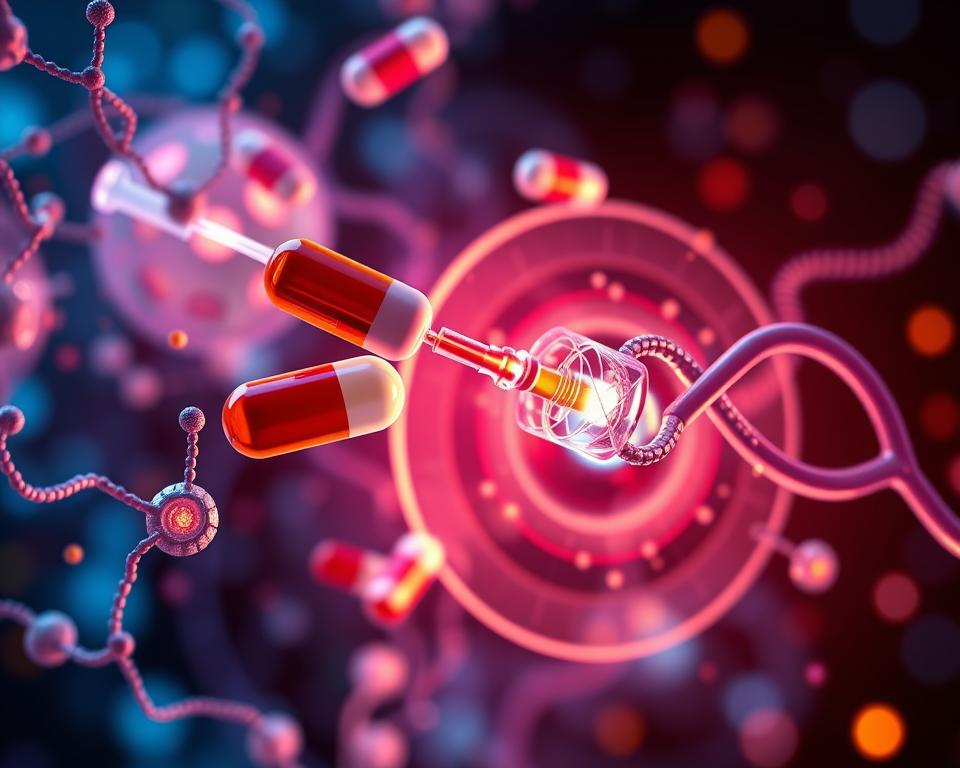
Other treatments like nutrition and mind-body therapy can also help. They work with targeted therapy to improve outcomes. This approach leads to better results and a better quality of life for patients.
| Treatment Combination | Cancer Type | Response Rate |
|---|---|---|
| Mustargen, vincristine, procarbazine, and prednisone | Hodgkin’s disease | High |
| 5-fluorouracil with radiation therapy | Rectal cancer | Improved |
| Hormonal agents with antiandrogens | Prostate cancer | Enhanced |
Pioneering the Future of Personalized Healthcare
As precision medicine advances, we’re moving towards a future where healthcare is tailored to each person. Targeted therapy is key in this shift. It has the power to change how we treat diseases like cancer.
By using genetic info to create treatments for each person, doctors can give better care. This leads to better health outcomes for patients.
The rise of targeted therapies marks a big change from old ways of treating diseases. It’s moving us towards a more personalized approach to medicine. Genetic testing and new treatments like adoptive therapy are making this future look bright.
Projects like Horizon 2020’s “Regions4PerMed” are pushing precision medicine forward. They bring together people and resources to make this field grow. As research finds new things, we’ll see more treatments that fit each patient’s needs.
The path to personalized healthcare has its hurdles, but we’re making progress. Healthcare workers, researchers, and patients are all working together. With targeted therapy and precision medicine, we’re building a healthcare system that really fits each person. This means better treatments and health for everyone.
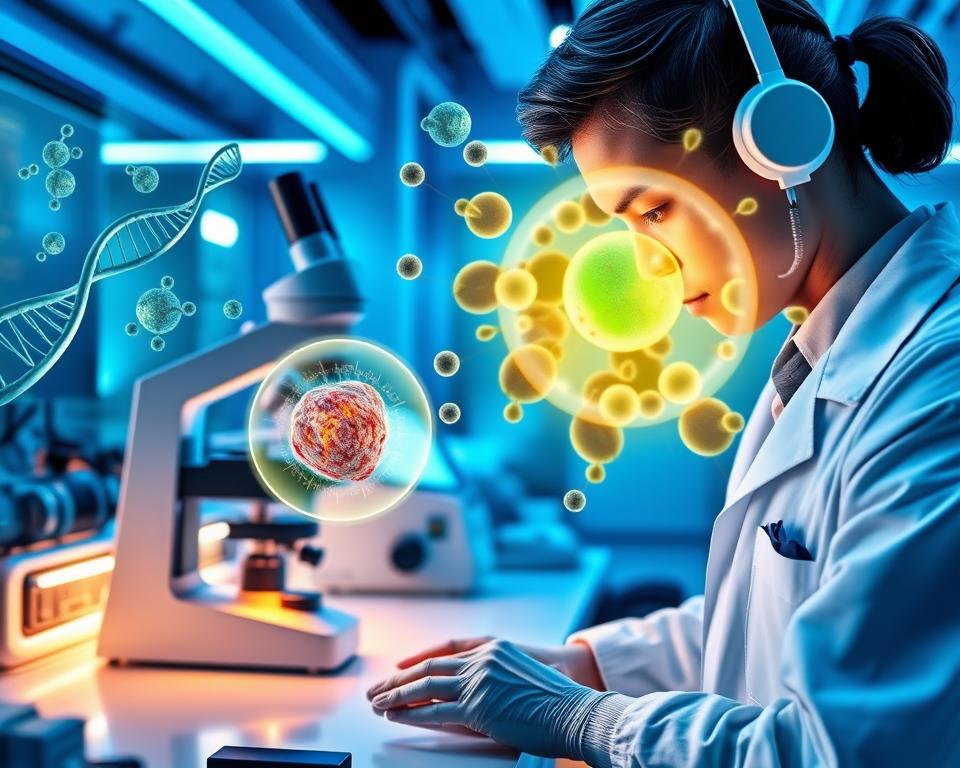

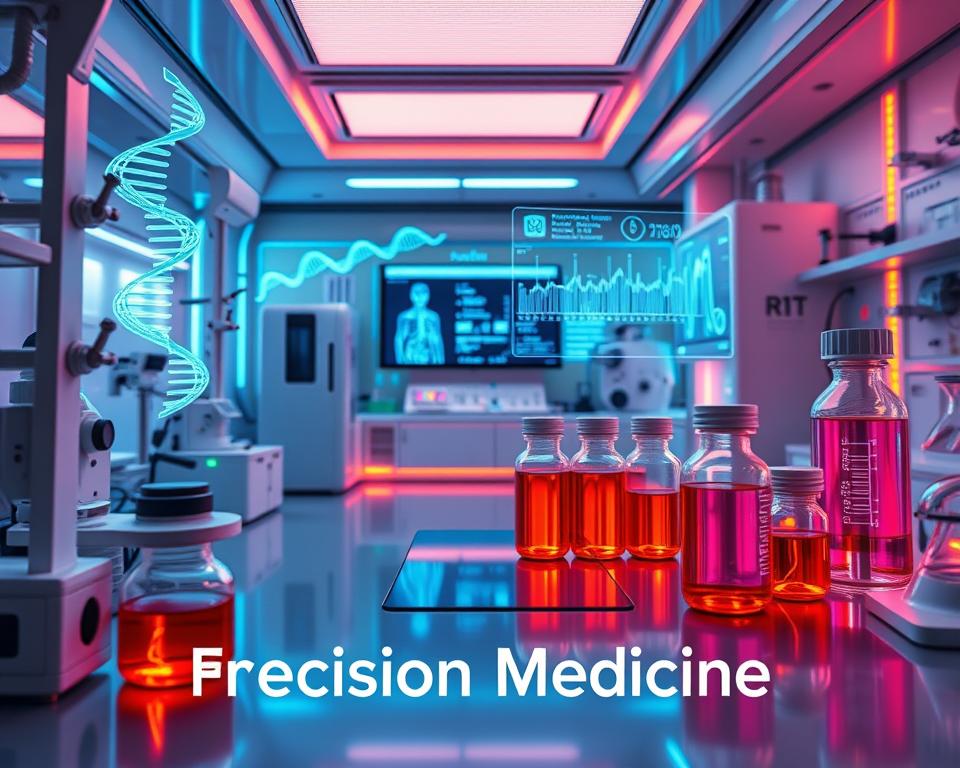
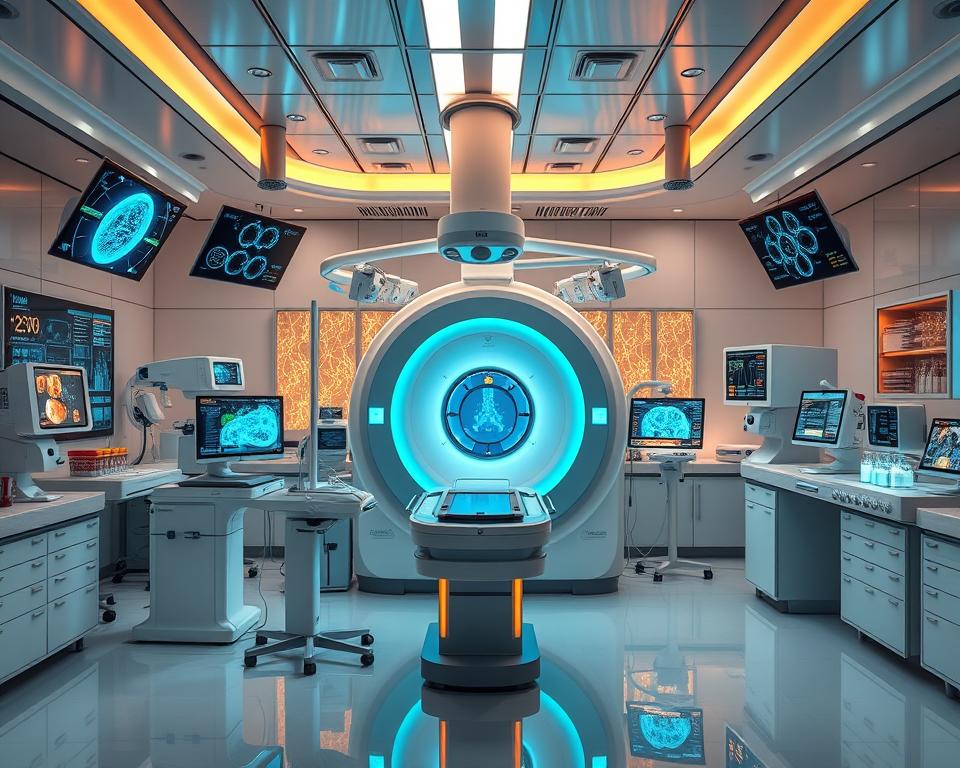

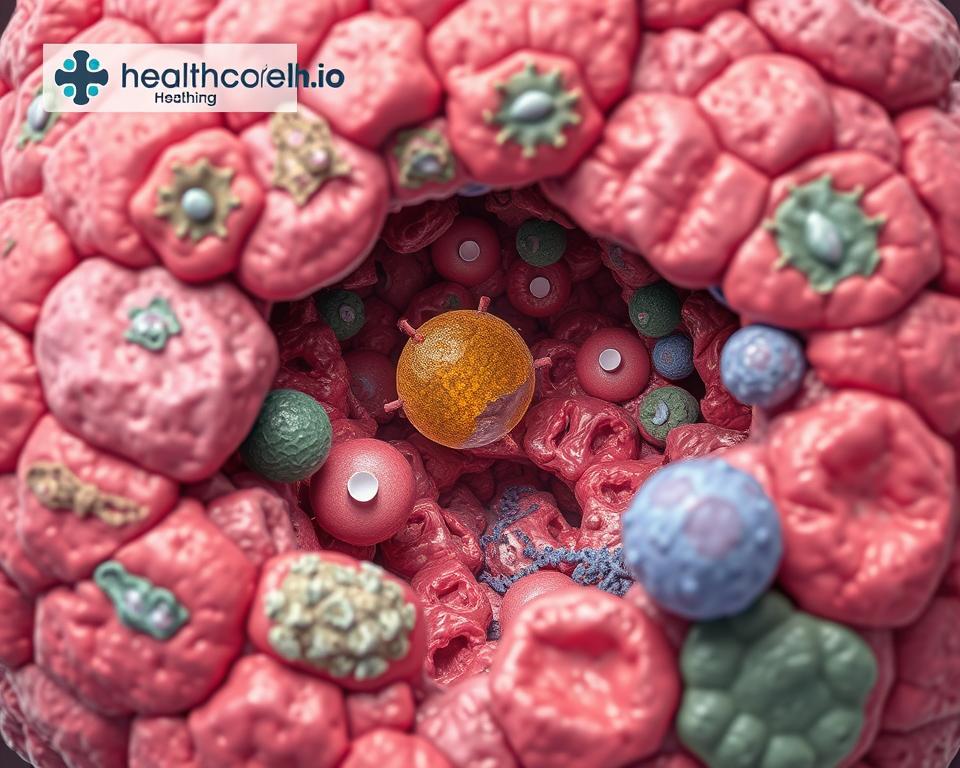
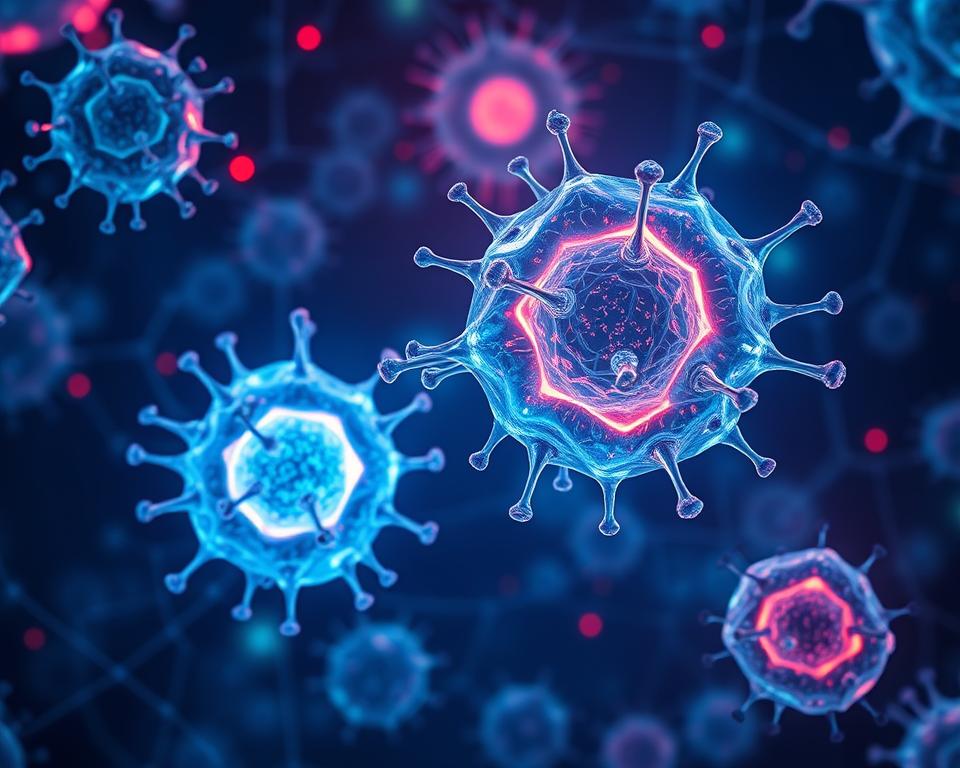



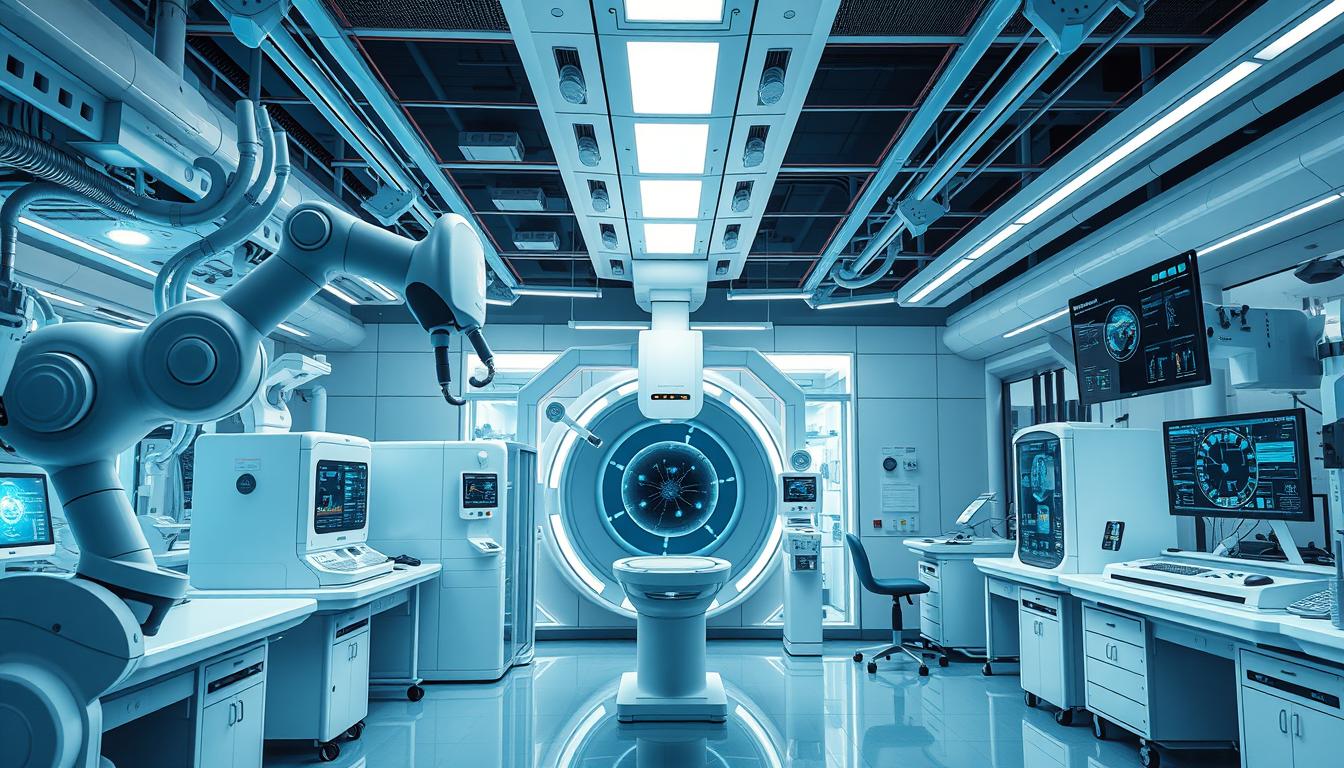


Leave a Reply